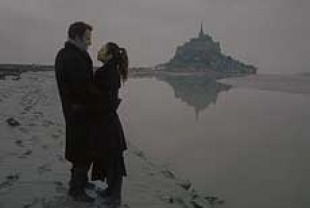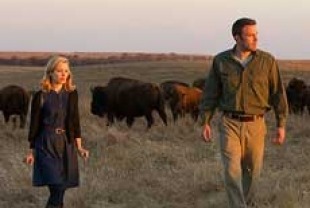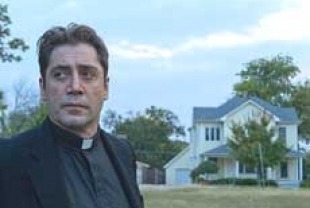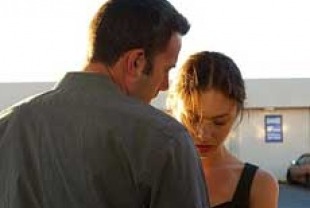"It is exactly through desire that we discover what animates and moves us."
— David Whyte in The Heart Aroused
Desire
There is within all human beings a deep yearning for transcendental meaning and a connection with the Source of Life. As the Nicaraguan poet Ernesto Cardenal put it: "We have always wanted something beyond what we wanted." This desire is characterized by a restlessness in our souls. We desperately want to break out of the prisons of separateness that our egos construct for us.
Yearning draws out the mystic inside of us, reminding us of our need for unity. It is expressed in our drive for sexual pleasure, our reverence for the beauty and mystery of the good Earth, and our ability to see the face of God in each and every human being we encounter. As freelance philosopher Sam Keen wrote in Hymns to an Unknown God: "The great pathfinders testify that the motive for the spiritual life is awakening desire rather than grim duty."
It is this boundless yearning that enables us to cross borders into new places. And this is the kind of desire illustrated in To the Wonder, Terrence Malick's sixth film. This director has had a creative and often controversial 40-year career that started with the vibrant and aesthetically mesmerizing Badlands (1973) and most recently saw the release of the wildly imaginative The Tree of Life ( 2012). In these two films along with The Thin Red Line (1998) and The New World (2005) he moved into fresh cinematic places and thematic spaces. This time he is going where very few directors have dared to go, organizing an entire film around the spiritual practice of yearning and the multiple expressions of human desire.
Malick has wisely structured the story around three main characters operating without a map and stumbling around in new territory. They are seeking love, sexual fulfillment, the comforts of home, the support of friends, connection with the bounties and the beauty of earth, and the presence of God. There is little dialogue but plenty of opportunities for us as spectators to join in their quest for meaning and purpose.
"Newborn, I open my eyes. I melt into the eternal night. A spark. You got me out of the darkness. You gathered me up from earth. You've brought me back to life."
Being Brought Back to Life
These words spoken in voice-over by Marina (Olga Kurylenko) open the film. She is referring to Neil (Ben Affleck), an American in Paris who has resurrected her passion and love. Together they experience a high that leads them to the sacred site of Mont St. Michel in Normandy. They climb to the top of the abbey "to the Wonder" where she envisions a future "forever at peace." Then they frolic in the mud of the tidal beach, savoring the joy of being with each other with no doing and no deadlines.
"You are the pure love of the moon,
You are the pure love of the stars,
You are the pure love of the sun . . .
and the dew, and the rain . . .
and you are the pure love of every creature."— Gaelic blessing
A Love Affair with the Natural World
The American takes Marina and Tatiana (Tatiana Chiline), her ten-year-old daughter, back with him to the United States. He has a newly purchased home in Bartlesville, Oklahoma, where he works as an environmental inspector. He has discovered that the oil company which employs many of the locals has released dangerous toxins into the environment, creating a grave threat to the people, crops, and animals in the area. As Neil quietly goes about taking soil and water samples, he feels the suffering of the natural world.
"Each one of us wants to belong. No one wants to live a life that is cut off or isolated. The absence of contact with others hurts us. . . . One of the great dreams of humanity is the founding of a perfect community where longing and belonging would come into sublime response."
— John O' Donohue in Eternal Echoes
The Yearning for Community and Belonging
Before long, Marina and Neil's sex life diminishes, the house does not become a home, and Tatiana, who speaks hardly any English, is unable to make any new friends. The girl hits the nail on the head when she says to her mother, "There's something missing." She's expressing another yearning of people around the world — a desire for an open and hospitable community where they can feel secure and at peace with the world. A free-spirited woman from town tempts Marina to follow her own path to freedom and not to depend on anyone else.
Neil for reasons that are not clear to Marina, himself, or the viewers is unable to make a formal commitment. He is unable to assuage the dissatisfaction and isolation his lover and her daughter feel in Oklahoma. When her visa expires, Marina and Tatiana return to Paris.
He goes back to his old girlfriend, Jane (Rachel McAdams), now a rancher raising buffalos. But overcome by guilt, he reunites with Marina when she returns to Oklahoma alone, having sent Tatiana to live with her birth father. They marry but their love still faces challenges.
"Those who walk on the Path have no longing after fine palaces or faith gardens.
In their hearts is nothing but the pain of yearning love for God."— Junaid in Essential Sufism by Robert Frager and James Fadiman
Yearning for God
Marina, a Catholic, seeks spiritual guidance from Father Quintana (Javier Bardem), a Spanish-speaking priest who is struggling with his own desires and doubts. Many in the parish know that he is a wounded soul; an old woman promises to pray for him so he can "achieve the gift of joy." He yearns to feel the presence of God: "Everywhere you're present," he prays, "and I can't even see you." He begs God to "show me how to love you." His dark night of the soul results in the realization that the Holy One is present in the lives of the poor souls in his parish: the sick, the addicts, and the prisoners. In a powerful scene, he recites the words from "St. Patrick's Breastplate."
"Life expires when one loses the thirst for it; life continues because our thirst is never fully quenched."
— Ann Pederson in God's Struggler
The Thirst That Is Never Quenched
In To the Wonder, Terrence Malick delves deeply into the different kinds of thirst or desire or yearning which give our lives texture, substance, and meaning. For far too long within many religious traditions, these spiritual qualities have been seen as problematic. Preachers have spoken out against desire as something dangerous and demonic.
But in this drama, yearning is the practice that leads to spiritual connection. The yearning for sexual passion, although rooted in mystery, calls forth other needs for security, responsibility, obligation, and commitment, and so is necessary for the characters' growth. The desires for community and for a right relationship with the earth are recognized by all the world's religions as salutary and, at this point in history, entirely necessary. And a dark night of the soul yields a mystical appreciation of oneness with the whole creation and an awareness of the Divine presence all around us.
To the Wonder is a mystical meditation on the many manifestations of the spiritual practices of yearning and love. Like the wind that blows across the plains as Marina and Neil engage in a playful chase, the Spirit of God teases us and invites us to follow. "Teach us where to seek you," says Father Quintana, echoing the call of spiritual people through the ages. The response is equally universal: Everywhere you turn you see the face of God.




